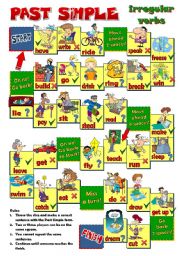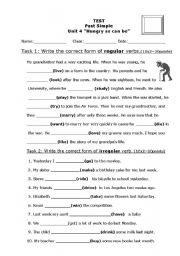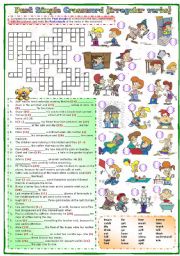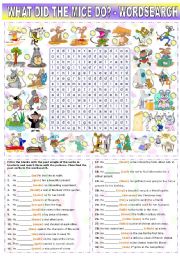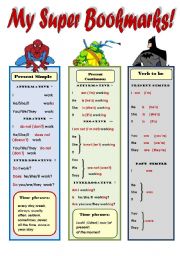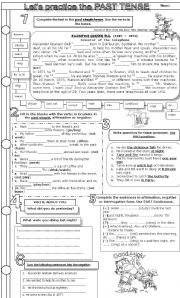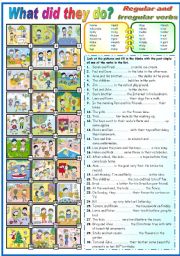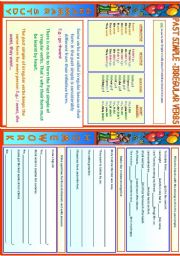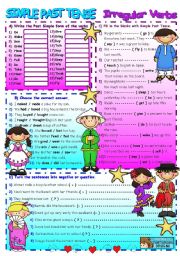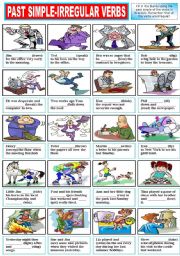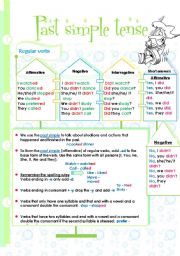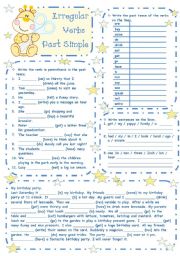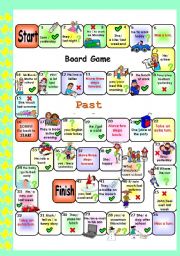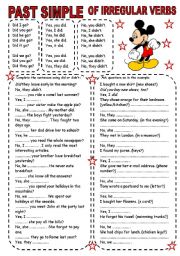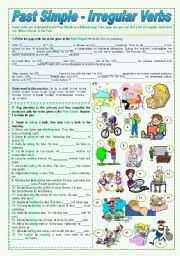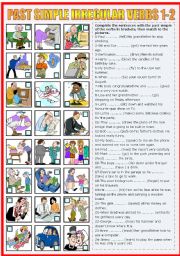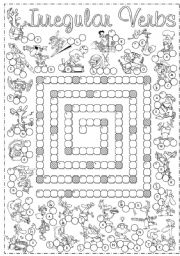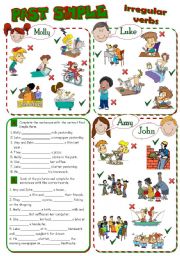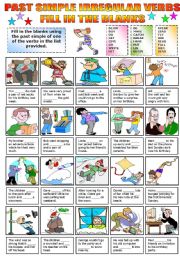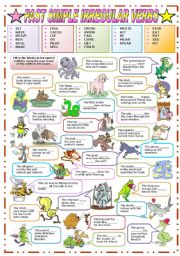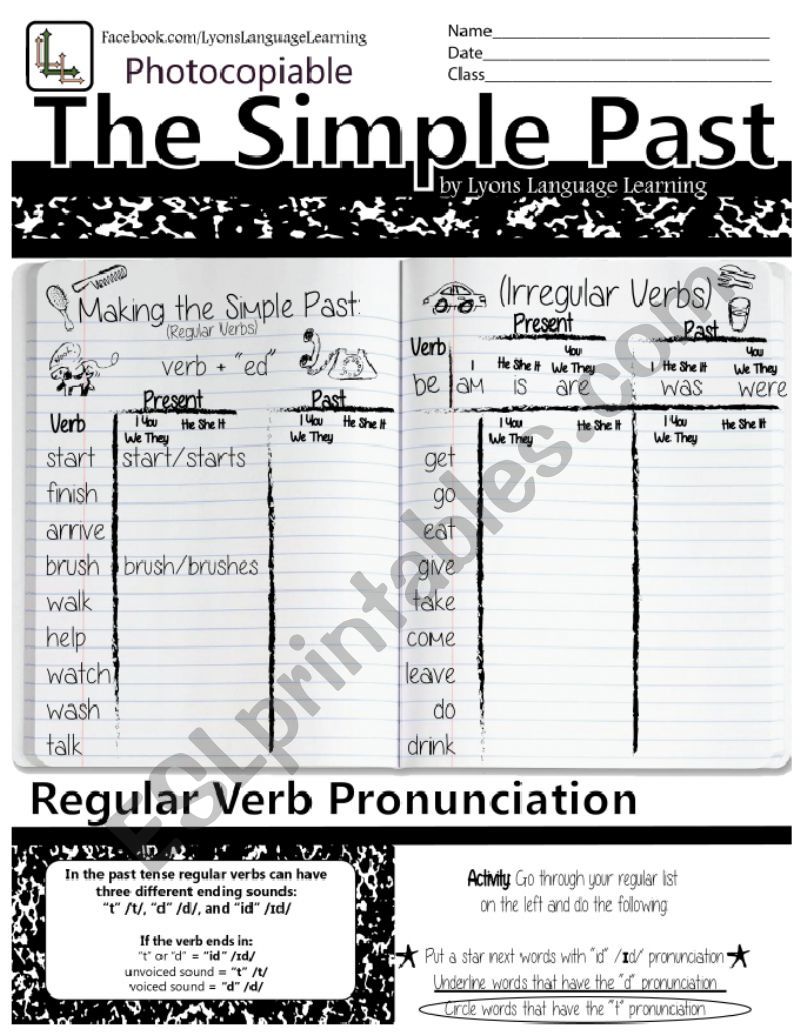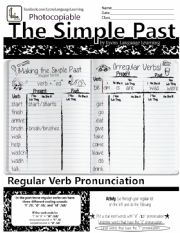
|
Simple Past Grammar Diary - Regular & Irregular Verbs (with pronunciation activity)
This worksheet was created as a fun way to introduce or review the simple past. Students must fill in the present form of the verb and then the simple past form. The activity is meant to resemble a mead notebook, with some fun sketches to brighten, an otherwise boring, grammar lecture. On the first page you have some regular verbs and on the second page you will find some common irregular verbs. It may be worth mentioning to your students that the most common verbs in most languages are irregular because they are the most commonly used and therefore most changeable over time. This emphasizes the importance of learning the irregulars. You really canīt speak a language well without them! :)
On the bottom of the worksheet there is a brief activity for pronunciation.
When I used this worksheet, I had my students put their hands on their throats and make a sound (eg. v vs. f, b vs. p, g vs. k, etc). If it was "voiced," their vocal chords vibrate and if itīs "unvoiced," their vocal chords do not vibrate. I had them make different sounds and tell if it was voiced or unvoiced and then look at the rule on the page to determine how a word would be pronounced. Then we went through the list of provided words to determine each wordīs particular pronunciation. This helped them to understand the meaning of "voiced" versus "unvoiced" and to be more active in the learning process. Iīve found that "ed" pronunciation can be very challenging for non-native speakers. So, itīs crucial to make sure they understand why itīs pronounced differently in different words.
I hope this is useful to you! Have fun and good luck!
Please feel free to give feedback. Through teaching Iīm always learning and, as a result, very aware that I have plenty to learn still. If you think this could be improved, tell me! :)
Level:elementary
Age: +5
Downloads:38 |
|
Copyright 21/5/2014 Lyons Language Learning
Publication or redistribution of any part of this
document is forbidden without authorization of the
copyright owner.
|

website

see more worksheets by LyonsLanguageLearning
|

